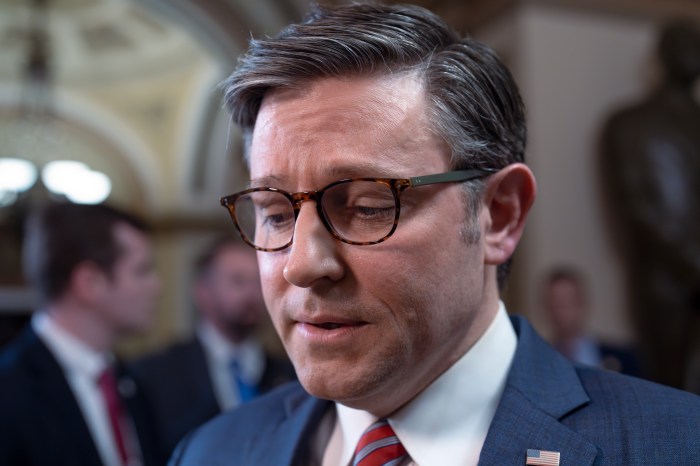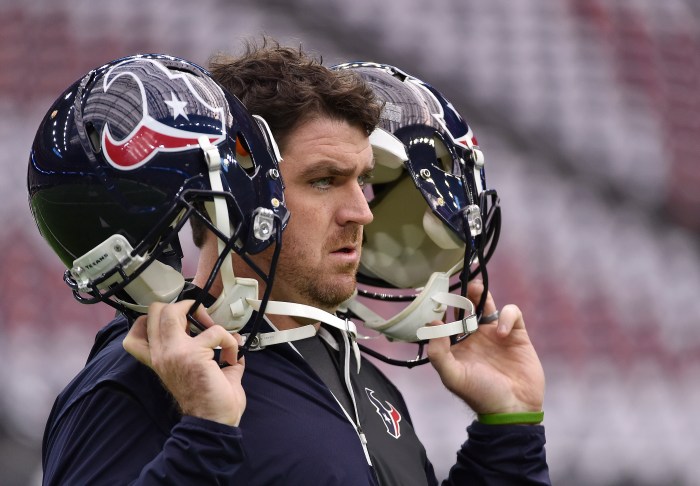JERUSALEM – French President Nicolas Sarkozy said Monday there could be no Middle East peace unless Israel drops its refusal to cede sovereignty over parts of Jerusalem claimed by the Palestinians, challenging one of Israel’s most emotionally held positions.
Speaking to a packed session of the legislature, Sarkozy called on Israel to stop settlement in the West Bank. But he tempered his address by assuring Israel that it could count on France’s support in halting Iran’s nuclear program.
Sarkozy, whose maternal grandfather was a Greek Jew, praised Israel’s democracy and quoted the biblical passage in which God promises the Holy Land to the children of Israel. The comments drew applause and broad smiles from most legislators but got scowls from the handful of Arab members.
But as he turned his attention to the struggling peace process, reactions were less enthusiastic.
“There cannot be peace without an immediate and complete halt to settlement,” he said. “There cannot be peace without recognition of Jerusalem as the capital of two states and the guarantee of free access to the holy places for all religions.”
Israel and the Palestinians have set a year-end target to reach a final peace deal. But the sides have said that goal is increasingly unlikely. The Palestinians are upset about continuing Israeli construction in the West Bank and east Jerusalem – areas they claim for a future state. Israel says the Palestinians must do more to rein in militants.
Israeli Prime Minister Ehud Olmert has declared a partial settlement freeze but said construction will continue in areas Israel intends on retaining – including major settlement blocs and Jewish neighbourhoods in east Jerusalem.
Olmert also opposes giving up control of Jerusalem’s Old City, where key Jewish, Christian and Muslim holy sites are located. Israel captured east Jerusalem, including the Old City, in the 1967 Middle East War.
Sarkozy assured Israel it was not alone in its concerns about Iran’s “nuclear military program” and said confronting Tehran requires a united international front. France takes on the presidency of the European Union on July 1.
“France is determined to pursue, with its partners, a policy of progressively tougher sanctions,” he said in French. “An Iran equipped with nuclear weapons is unacceptable for my country.”
At a meeting in Luxembourg on Monday, EU countries approved new sanctions against Iran, including a freeze on assets of the country’s biggest bank and a travel ban on high-level experts dealing with Iran’s nuclear program.
Israel, which believes Iran is developing nuclear weapons, has welcomed the international sanctions, but warned that “all options are on the table” if diplomacy fails.
Iran has denied pursuing nuclear weapons, saying its program is geared toward generating electricity.
While Sarkozy’s speech was well-received, Olmert acknowledged some differences between the countries in an address to the same parliamentary session.
“I do not intend to brush over the differences of opinion between us on several issues.” Olmert said, as Sarkozy listened intently. “We don’t always on every issue, on every detail, see things exactly the same way.”
Sarkozy arrived in Jerusalem Sunday for a three-day visit, accompanied by his wife, model-turned-singer Carla Bruni-Sarkozy.
His schedule includes talks with Israeli and Palestinian leaders, a visit to the biblical West bank town of Bethlehem and a meeting with the parents of an Israeli soldier held by Palestinian militants in Gaza. The young man, Sgt. Gilad Schalit, holds French citizenship.
France was a strong ally in Israel’s early years of independence. But relations soured, particularly after the 1967 war, when France imposed an arms embargo and began adopting more policies critical of Israel.
Many Israelis have long viewed France as biased in favour of the Palestinians, and reports of rising anti-Semitism toward the French Jewish community – at 600,000, the third-largest in the world – have only fanned the flames.














